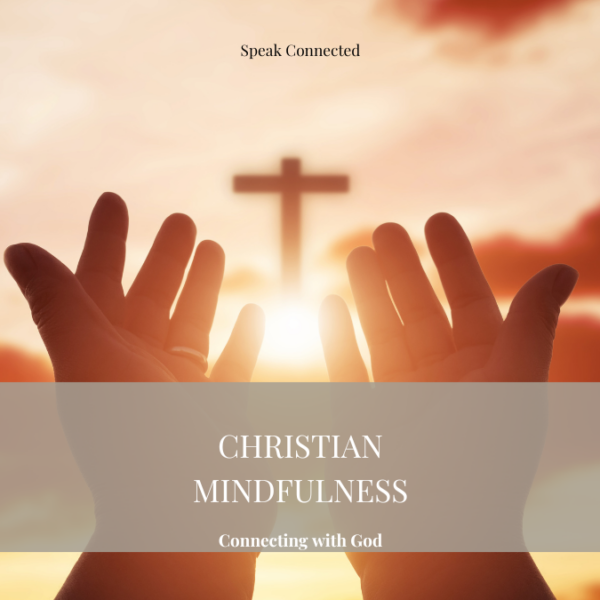
Can engaging in spiritual disciplines nourish not just your soul but also your mind? You may be surprised by how practices like fasting, Bible study, and prayer can significantly impact your mental health. These timeless practices, rooted in the Christian faith, are invaluable tools for maintaining balance, fostering resilience, and finding peace in an increasingly hectic world.
This post explores the connection between spiritual disciplines and mental health. Specifically, we’ll discuss the role of fasting, Bible study, and prayer as methods of grounding ourselves and cultivating a healthier mind and spirit.
What Are Spiritual Disciplines?
Spiritual disciplines are intentional practices designed to deepen your relationship with God, nurture faith, and transform your character. They have been practiced for centuries by Christians seeking spiritual growth and alignment with divine truths. However, spiritual disciplines go beyond mere rituals—they are powerful tools that can also help heal our mental and emotional states.
Today, as mental health continues to gain recognition as an essential part of overall well-being, it’s worth rediscovering how spiritual disciplines can benefit our spirits and minds. Fasting, Bible study, and prayer, in particular, stand out for their profound and practical contributions to achieving mental stability and resilience.
Fasting as a Path to Clarity and Growth
What Is Fasting?
Fasting is abstaining from food for a set period to dedicate that time to spiritual focus. Biblically, fasting was often used to seek God’s guidance, repentance, or strength during difficult seasons. Figures such as Moses, Elijah, and Jesus fasted in preparation for pivotal moments in their journeys of faith (Exodus 34:28, 1 Kings 19:8, Matthew 4:2).
How Fasting Enhances Mental Health
Fasting is not only spiritually significant but also has benefits for your mental health:
- Mental clarity and focus: Removing distractions, including reliance on physical cravings, allows for a clearer focus on prayer and reflection.
- Stress reduction: Fasting and prayer foster calm and reduce anxiety by allowing a purposeful pause from daily pressures.
- Discipline: Fasting builds self-control, helping individuals break free from unhealthy habits or patterns.
- Renewed perspective: By unplugging from excess, fasting enables resetting priorities, reducing mental clutter, and encouraging inner peace.
How to Incorporate Fasting into Daily Life
- Start small by fasting for one meal or just a portion of your day.
- Set a purpose for your fast, such as seeking greater peace, processing grief, or asking for divine clarity.
- Pair fasting with prayer during meal times to anchor the practice in spiritual growth.
- Listen to your body and consult professionals if you have health concerns.
Fasting is not simply about deprivation; it’s about creating space for insight, prayer, and spiritual renewal.
Bible Study for Mental Clarity and Purpose
Why Is Scripture Engagement Vital for Mental Health?
Engaging with scripture is far more than reading ancient texts. It’s a form of spiritual dialogue that feeds your mind and spirit. The Bible is filled with wisdom and encouragement that can serve as a guide through life’s difficulties.
Key mental health benefits of Bible study include:
- Purpose and direction: By meditating on scripture, you can find clarity and answers in moments of confusion or doubt.
- Peace and reassurance: Verses like Philippians 4:6-7 remind us to lean on God and reject anxiety.
- Self-worth: The Bible affirms our identity as beloved creations of God (Psalm 139).
- Renewed mindset: Reflecting on verses like Romans 12:2 can lead to a transformed perspective through the renewal of your mind.
Tools and Resources for Effective Bible Study
- Study Bibles such as the ESV Study Bible include notes and insights to deepen understanding.
- Bible study apps like YouVersion offer reading plans tailored to themes like anxiety or purpose.
- Journaling is another valuable method—record your thoughts, prayers, and revelations after engaging with scripture.
- Small groups or church programs provide a community for deeper discussions.
Regular Bible study is like mental and spiritual conditioning. It builds resilience, appreciation for life’s bigger picture, and a growing sense of God’s presence.
The Transformative Power of Prayer
How Prayer Improves Mental Health
Prayer is an intimate conversation with God where you can express joys, struggles, and dreams. For mental health, prayer provides an emotional outlet, much like talking to a trusted friend or counselor. Here’s how it helps:
- Stress relief: Studies show prayer can decrease stress and promote relaxation responses in the body.
- Gratitude: Prayers of thanksgiving shift focus to blessings, counteracting negativity bias and lifting mood.
- Healing and forgiveness: Bringing hurts before God fosters emotional healing and reconciliation, which is essential for mental well-being.
- Mindfulness and presence: Prayer encourages you to be still (Psalm 46:10), grounding you in the present.
Different Forms of Prayer to Explore
There’s no one “right” way to pray. Incorporating different forms of prayer can invigorate your practice:
- Supplication or petitionary prayer focuses on asking for divine help or intervention.
- Adoration allows you to praise and align your perspective with God’s greatness.
- Intercessory prayer on behalf of others builds a stronger sense of empathy and community.
- Contemplative prayer emphasizes quiet listening to deepen your sense of God’s presence.
Building a Meaningful Prayer Habit
- Set a specific time daily for prayer—whether morning or evening—to cultivate consistency.
- Use prompts or guides like the ACTS formula (Adoration, Confession, Thanksgiving, Supplication).
- Begin with small, 5-minute sessions, and gradually increase this time.
- Pray creatively through music, art, or journaling if traditional forms feel limiting.
Prayer doesn’t just build your relationship with God; it rewires your mind to focus on hope, healing, and faith.
Finding Balance Through Faith
Mental health is deeply complex, but spiritual disciplines like fasting, Bible study, and prayer offer tried-and-true avenues of calm and growth. These practices foster a connection to something greater, providing clarity and purpose amid life’s challenges.
If you’re new to these disciplines, start small. Try fasting one day a week, exploring scripture through easy reading plans, or setting aside five minutes for prayer daily. Consistency, not perfection, will make the most profound difference in your life.
We’d love to hear from you! How have spiritual disciplines impacted your mental health? Share your story or tips in the comments below. Exploring faith for mental stability is a deeply personal yet universal experience; your perspective could inspire others.
Recommended Readings







Good https://shorturl.at/2breu
Awesome https://is.gd/N1ikS2